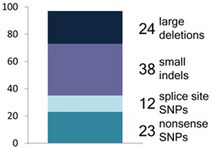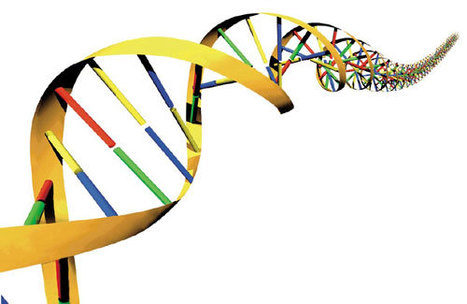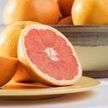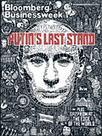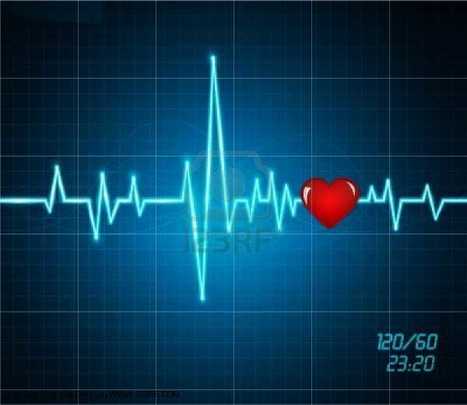 Your new post is loading...
 Your new post is loading...
Analysis suggests stents aren't as beneficial as previously thought. The analysis included results on more than 7,200 patients enrolled in eight studies between 1997 and 2005 comparing stents with medical therapy in stable heart patients with narrowed sections in their heart arteries. It was time to look at updated data, according to the researchers on this case. Acting on these results could save the health care system over $9,000 per patient and cause fewer complications with the less invasive methods.
Many people now use pharmaceuticals to help manage their moods. Anxiety is commonplace in a world where everything moves quickly and multi-tasking is a necessity. Are there other options? Possibly. New research lends credence to the use of two natural supplements for depression and anxiety.
Getting shape and eating right have connections to the brain. And the whole package can help you stay in good health to enjoy a long quality of life. Brain>>Eating
Memory games and positive thinking may help control the impulses to eat unhealthy foods... Exercise>>Brain Exercise can literally help you develop new brain cells, plus lead to increased willpower...
Have you ever eaten ammonia? If you had a burger at McDonalds last year, you probably have. "Pink slime - a mix of meat trimmings washed in ammonium hydroxide and used in fast food burger patties - churned consumer's stomachs so much; McDonald's banned the slop, according to news reports."
A remote drug delivery system has successfully been tested in a human trial. A microchip was implanted in 8 women and delivered a drug to treat osteoporosis once a day for 20 days. There were no adverse affects and, compared to a control group of women who injected the drug, the microchip-delivered treatment was just as effective...
New research supports a largely unrecognized culprit in circadian rhythm disturbances: the gradual yellowing of the lens and the narrowing of the pupil that come with age.
Scientists report promising results for an experimental pancreatic cancer drug treatment. More than 80% of patients with pancreatic cancer die within a year of diagnosis. This sad prognosis has prompted Cancer Research UK to allocate more funds to related treatments. Pancreatic cancer is the fifth most common cause of death by cancer in the UK. In initial trials, the new drug has been seen to shrink tumors. Next up-- clinical trials, which will involve about 60 patients.
The focus of much of our society is to do more and do it faster. Unfortunately, as much as we like quick video downloads and speedy internet; not waiting in line and getting things out of the way, this constant 'up' mode invokes the stress response. Keep it going and you have chronic stress, which can lead to serious illness. Need a break? Just playing calm music or giving yourself a little breathing room can calm the response. In this article, the Health Ranger gives us some soothing tips to reduce daily stress.
Leila Denmark, MD celebrated her 114th birthday on February 1, 2012. Have a Happy Healthy Year Dr. Denmark!
Hara Hachi Bu mean to eat only until you are 80% full. The Okinawans control their caloric intake with this cultural idea. This means they naturally restrict calories by 20%. Caloric restriction is the most powerful known method of life extension that we know so far. "Okinawa, Japan has been deemed one of the Blue Zones’
locations that promote longevity. Longevity and the Diet of Okinawa, Japan will disclose some of the basic foods of Okinawa, share some recipes, and reveal the lifestyle of its people."
"New study finds that short fasting cycles can work as well as chemotherapy, and the two combined greatly improve survival." Caloric Restriction (CR) is currently the most successful method we know for extending lifespan. But extreme CR tends to make you gaunt-looking and pretty unhappy. That's no good. We recommend moderate CR, cutting 10% of your caloric intake. This will still benefit your body. To make it even easier, try a mini-fast daily. Terry recommends that we stop eating at 7pm and then have breakfast after 7am. Voila-- a 12 hour mini-fast every day that's easy to do. And you'll sleep better without the heavy metabolic action taking place during the night. This new study also shows that these mini-fasts can help minimize cancer risk.
You are your best advocate. And, really, you are the one who should care the most about the health care that you receive. No one else can know every intricacy of your system. If you take an active interest, you will not only protect yourself better, but you will make it easier for your doctor to treat you right! "Patient engagement is the holy grail of health care. Health care professionals need to start looking at things like the definition of health, compliance, and outcomes from the patient’s perspective."
Neuroscientists boost memory using genetics, new memory-enhancing drug http://t.co/0gBCRdcd #memory #longevity #aging...
|
Genome-sequencing studies indicate that all humans carry many genetic variants predicted to cause loss of function (LoF) of protein-coding genes, suggesting unexpected redundancy in the human genome. It is estimated that human genomes typically contain ~100 genuine LoF variants with ~20 genes completely inactivated. A recent paper in Science describes some of these rare and likely deleterious LoF alleles, including 26 known and 21 predicted severe disease–causing variants, as well as common LoF variants in nonessential genes.
Via Dr. Stefan Gruenwald
Scientists have created a robot made entirely from DNA that can be instructed to find diseased cells in the body and deliver a payload to kill or reprogram them, according to a study from Harvard University.
Scientists at UC San Diego have created living neurons in the lab. The researchers used fibroblasts from skin tissue to create induced pluripotent stem cells (iPSCs), which can become any mature cell in the body, including nerve cells.
"Electrical engineer Ada Poon has developed a tiny, wirelessly powered, self-propelled medical device capable of controlled motion through the bloodstream. Poon, an assistant professor at the Stanford School of Engineering, is developing a new class of medical devices that can be implanted or injected into the human body and powered wirelessly using radio waves. No batteries to wear out. No cables to provide power...." Imagine the apps that we could load into this little device. You could check your blood sugar, monitor your cholesterol, watch your weight, even do routine maintenance to the arteries and organs. You'd never forget to take a pill again. Check out the video at KurzweilAI
Things are looking up for aging mice and, if this research pays off, for aging humans, too. Researchers have found that a long-suspected anti-aging protein called sirtuin can make male mice live about 16 percent longer than average, the first such advance for mammals in a field that has thus far only offered the blessings of extended life span to yeast, nematodes and fruit flies...
People with asthma may one day receive an unconventional prescription for their condition: eat less. Caloric Restriction (CR) has been studied for years as a method for life extension. This has been proven to work in animal studies, but the results are still unclear in human-- mainly because human lifespan is so much longer than animal lifespan that an adequate study is difficult to engineer. Now we have evidence that CR may help lower risk of diseases, from asthma to cancer and even Alzheimer's.
The AMA is proposing a federal law forcing each person to need to opt-out of experimental vaccine trials, while they are initially automatically enrolled. Through history, vaccines have helped to erradicate polio and minimize outbreaks of diseases like measles and mumps. But has science now tried to do too much with vaccine technology? What do you think about vaccines?
The first study to specifically examine the effects of the Mediterranean diet found benefits to the brain. Coming out in this month's issue of Archives of Neurology, a new study indicates that the eating pattern typically called the 'Mediterranean diet,' might help protect the small blood vessels in the brain. This could mean less stroke and less memory loss for people that eat within these guidelines, though the results are an association only and not considered hard proof. People who ate more monounsaturated fats (such as in olive oil) had the best brain scans.
Stem cells grown from patients’ own cardiac tissue can heal damage once thought to be permanent after a heart attack, according to a study that suggests the experimental approach may one day help stave off heart failure. These kind of therapies may someday allow us to replace worn-out organs with new ones made from our own compatible cells.
"A cancer drug given to mice eliminates brain-damaging proteins, leading to improved cognition within days, but will it work in humans?" This cancer drug, Bexarotene, has now been shown to increase levels of APoE. If ongoing study shows that it can increase levels of the E2 allele, that will be more promising for Alzheimer's treatment.
Researchers at Rice University and Texas Children's Hospital have turned stem cells from amniotic fluid into cells that form blood vessels. Their success offers hope that such stem cells may be used to grow tissue patches to repair infant hearts. "We want to come up with technology to replace defective tissue with beating heart tissue made from stem cells sloughed off by the infant into the amniotic fluid," said Rice bioengineer Jeffrey Jacot, who led the study. "Our findings serve as proof of principle that stem cells from amniotic fluid have the potential to be used for such purposes.
Do you buy organic? Ever been curious whether you are getting what you pay for? Unfortunately, sometimes you aren't getting exactly what you think... “Grated organic cheese, for example, contains wood starch to prevent clumping. Organic beer can be made from non-organic hops. Organic mock duck contains a synthetic ingredient that gives it an authentic, stringy texture.” "Three years ago, U.S. Department of Agriculture employees determined that synthetic additives in organic baby formula violated federal standards and should be banned from a product carrying the federal organic label."
|



 Your new post is loading...
Your new post is loading...













